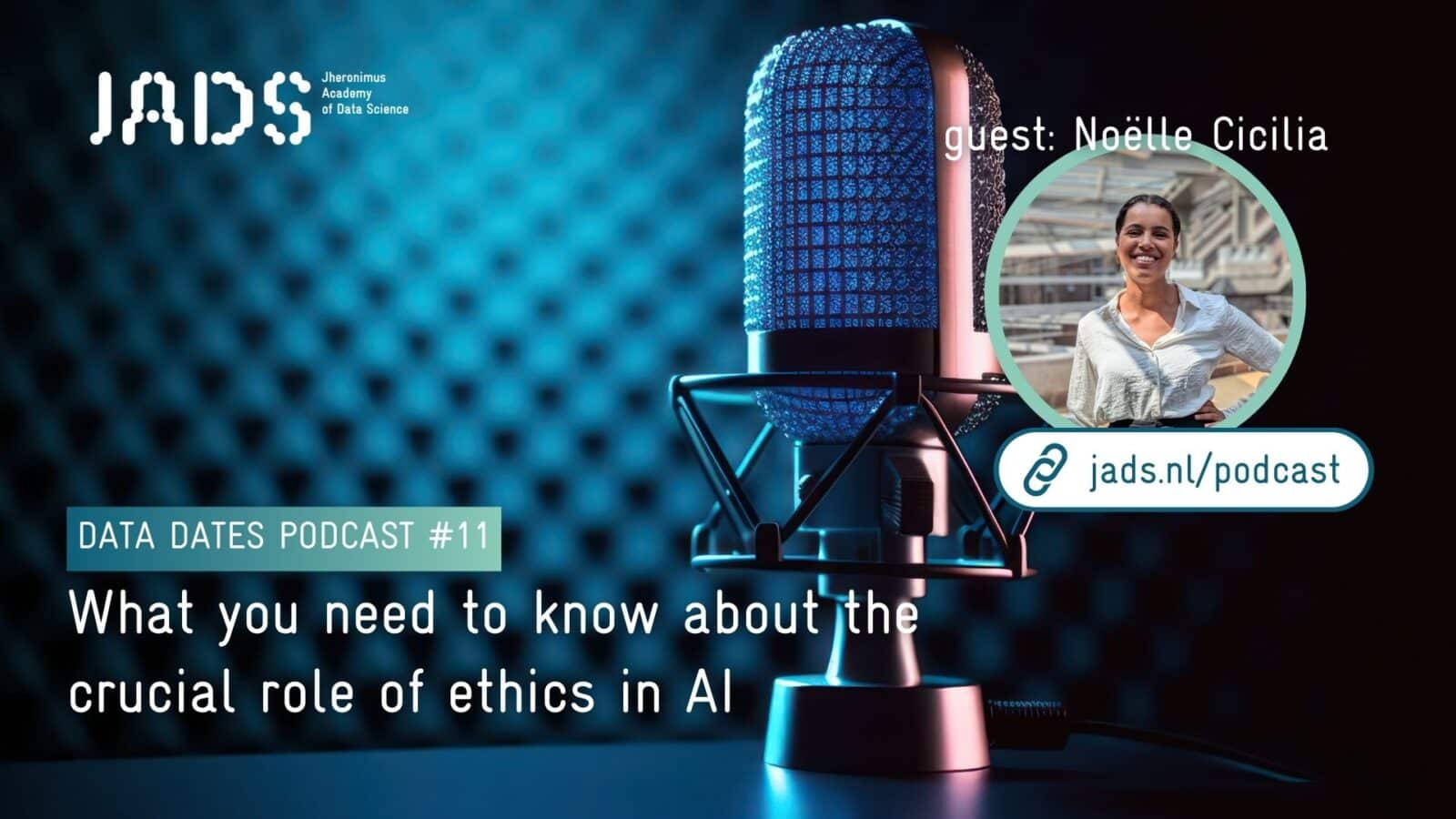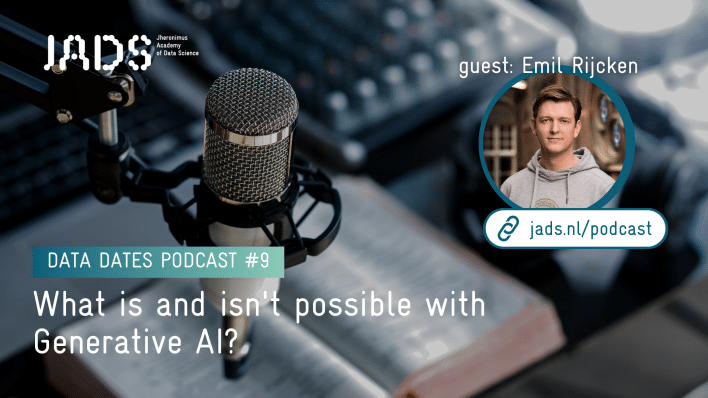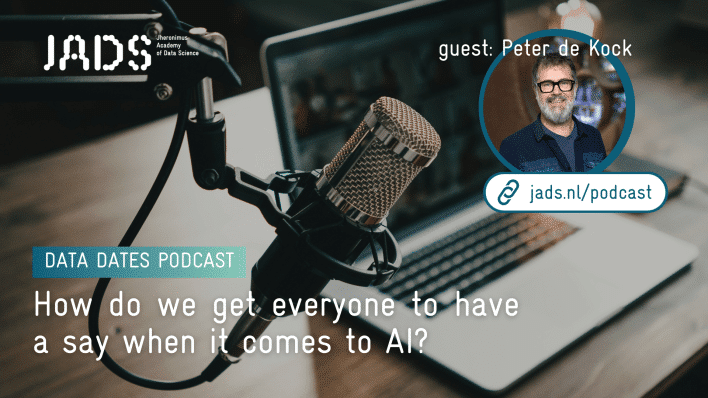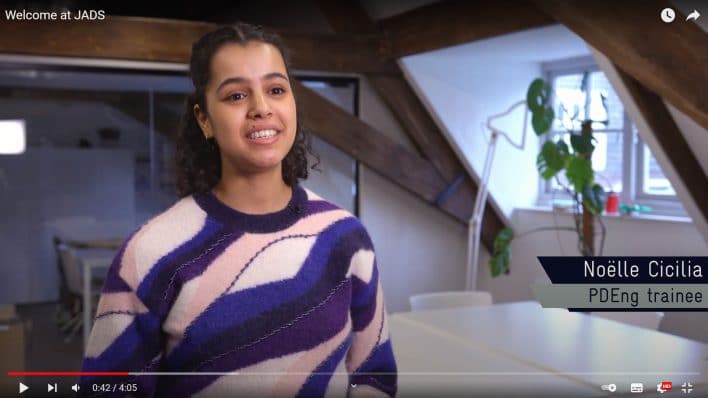AI with responsibility: How do we make sure ethics remain the foundation?
Posted on
The latest episode of the Data Dates podcast focuses on a topic that is more relevant than ever: Responsible AI. Edwin and Els sit down with Noëlle Cicilia, alumna of JADS and founder of Brush AI, a promising start-up focused on the ethical aspects of artificial intelligence; she discusses how to make sure that the ethical aspects of artificial intelligence remain at the forefront of our minds.
Responsible AI: The power and vulnerability of smart systems
AI, or artificial intelligence, has become an integral part of our daily lives. From the recommendations on Netflix to the smart assistants in our phones, AI systems are playing an ever-expanding role. But with this growing impact also comes an important question: how do we ensure AI remains ethical?
In the podcast, Noëlle Cicilia lays out how AI is not only a powerful tool, but also a technology that, if used incorrectly, can cause problems. “AI can create phenomenal value, but the same features that enable these advances can also lead to problems, such as discrimination and bias in systems,” she explains. It is crucial to be aware of the responsibility that AI developers have.”
AI literacy: a necessity for all
One of the most striking aspects of the conversation is the consideration of AI literacy. In a world where technology is becoming increasingly complex, it is essential that not only experts, but also the broader population understand the workings of AI and its potential implications. Noëlle advocates education starting in elementary school and compares learning how to use AI to learning to Google:
“AI is not just something for techies,” she stresses. “We all need to have a basic understanding of what AI is and how it affects our daily lives. Only then can we think critically about the systems we interact with.”
The responsibility of companies and governments
Noelle also emphasizes the role of companies and governments in promoting Responsible AI. In her opinion, organizations large and small should integrate ethics into their development processes. This shouldn’t be seen as an extra burden, but as a necessary investment in quality and trust.
“Responsible AI is not only a moral issue, but also a business issue,” she says. “Companies that take ethics seriously build stronger relationships with their customers and avoid reputational damage. It’s a win-win.”
Why everyone should be involved
The conversation ends with a plea from Noëlle: AI is too important to be left to a select group of experts. Everyone should be involved in the discussion of how to use AI responsibly. She points out the need for critical thinking and encourages listeners to educate themselves about the technology:
“AI is changing the world like electricity once did,” Noëlle says. “ We all need to understand what AI is and what its impact can be. Only then can we ensure that AI serves us, rather than harms us.”
This episode of the Data Dates podcast offers a fascinating insight into the world of Responsible AI and shows why ethics is not optional, but fundamental to the future of technology.
Attention: The Data Dates Podcast is in Dutch only
Or listen directly below




